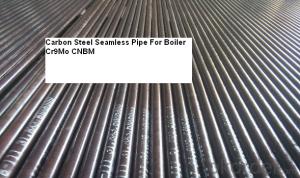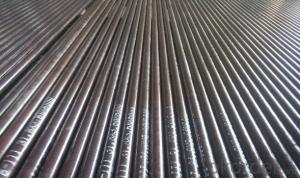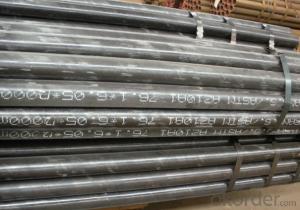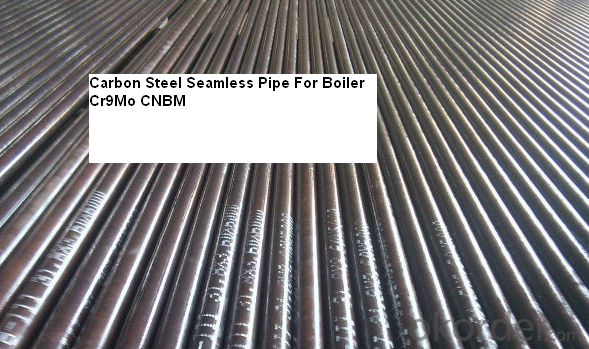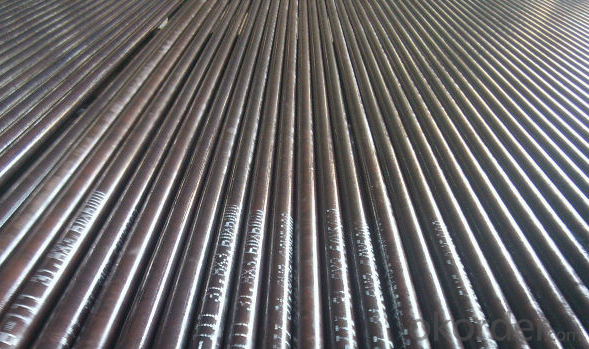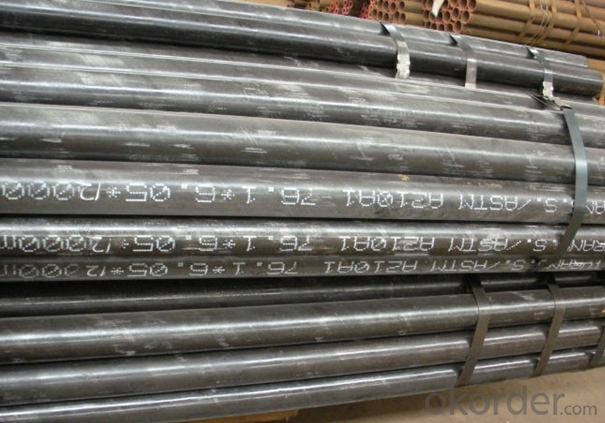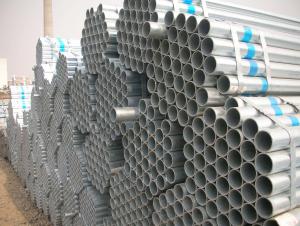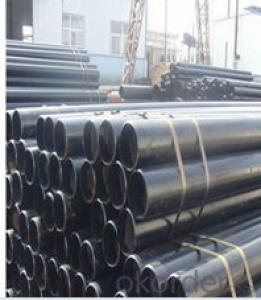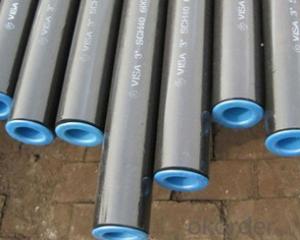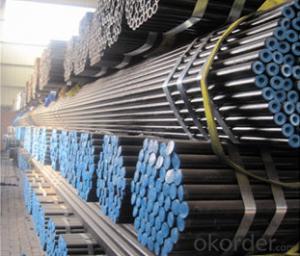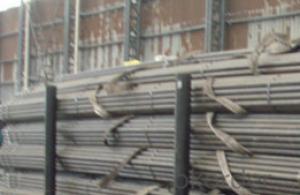Carbon Steel Seamless Pipe For Boiler Cr9Mo CNBM
- Loading Port:
- Qingdao
- Payment Terms:
- TT OR LC
- Min Order Qty:
- 10 pc
- Supply Capability:
- 30 pc/month
OKorder Service Pledge
OKorder Financial Service
You Might Also Like
Quick Details
| Thickness: | 1.2 - 20 mm | Section Shape: | Round | Outer Diameter: | 12.7 - 168 mm |
| Place of Origin: | Jiangsu China (Mainland) | Secondary Or Not: | Non-secondary | Application: | Boiler Pipe |
| Technique: | Cold Drawn | Certification: | PED | Surface Treatment: | oil coating |
| Special Pipe: | Thick Wall Pipe | Alloy Or Not: | Is Alloy | ASTM A213: | T2,T5,T9,T11,T12,T22,T23,T91,T91 |
| ASTM A335: | P1,P2,P5,P9,P11,P12,P22,P23,P91,P92 | DIN17175: | 15Mo3,10CrMo910,12CrMo195,13CrMo44 | Grade: | 12Cr1MoV,Cr5Mo,Cr9Mo,12Cr1MoVG,Cr5MoG,A335 P11,A335 P5,A335 P9,A335 P1,A213,A192,A210,A335 P12,A335 P23,St35.8,Cr-Mo alloy,A53-A369,ST35-ST52 |
| Standard: | BS 3059-2,DIN EN 10216-1-2004,DIN 17175,ASTM A213-2001,ANSI A210-1996,ASTM A179-1990,BS,DIN,ASTM |
Packaging & Delivery
| Packaging Detail: | Seaworthy export packing |
| Delivery Detail: | 45 Days |
Specifications
Standard: ASTM A179,ASTM A192,ASTM A210,DIN17175,EN10216-1
Material:P235GH,ST35.8,ST45.8
Manufacture method:cold drawn
Product Description
Commodity: Carbon steel seamless pipe for boiler
Standard&material: ASTM A179,ASTM A192,ASTM A210 Gr.A1,Gr.C,DIN17175 ST35.8,ST45.8,EN10216-1 P235GH,P265GH,etc.
Size range: 12mm*1.2mm - 168mm*20mm
Manufacture method: cold rolled, cold drawn
Delivery condition: Normalized, Normalized and Tempered.
Mill test certificate as per EN10204 3.1B is available.
Third party inspection is acceptable.
Tubes will be ECT+UT.
- Q: How are steel pipes transported and stored?
- Steel pipes are typically transported by loading them onto trucks or shipping containers, while larger pipes may be transported by rail or barge. During transportation, pipes are secured and protected from damage using straps, braces, or foam padding. Once at the storage site, pipes are usually stacked in a designated area, either vertically or horizontally, depending on their size and weight. They may also be stored in racks or on stands to prevent them from rolling or collapsing. Proper storage conditions include keeping the pipes away from moisture, extreme temperatures, and corrosive substances to maintain their quality.
- Q: How are steel pipes used in sewage treatment plants?
- Steel pipes are commonly used in sewage treatment plants to transport wastewater, sludge, and other fluids throughout the facility. They provide a durable and corrosion-resistant solution for the harsh environments found in these plants. Steel pipes are used for various purposes, such as conveying raw sewage, distributing treated water, and carrying sludge for disposal or further processing.
- Q: How are steel pipes used in industrial manufacturing processes?
- Steel pipes are commonly used in industrial manufacturing processes for various purposes such as transporting fluids, gases, and solids, providing structural support, and facilitating heat transfer. They are used in industries like oil and gas, construction, automotive, and manufacturing, where they are utilized for plumbing systems, conveyance of materials, and as a durable and reliable medium for handling high-pressure and high-temperature applications.
- Q: How are steel pipes inspected for defects?
- Steel pipes are inspected for defects using various methods, including visual inspection, ultrasonic testing, magnetic particle inspection, dye penetrant testing, and radiographic examination. These techniques help identify any cracks, corrosion, or other defects in the pipes to ensure their structural integrity and prevent any potential hazards or failures.
- Q: Can steel pipes be used for pharmaceutical manufacturing?
- No, steel pipes are not typically used for pharmaceutical manufacturing as they can pose a risk of contamination and corrosion. Instead, pharmaceutical manufacturing typically relies on materials such as stainless steel or specialized polymers that are more suitable for maintaining sterile conditions and ensuring product purity.
- Q: Can steel pipes be used for drinking water supply?
- Yes, steel pipes can be used for drinking water supply. Steel pipes are commonly used in water distribution systems due to their strength, durability, and ability to withstand high pressures. However, it is important to note that the steel used in these pipes must be specifically designed and approved for potable water applications to ensure that it does not contaminate the water with any harmful substances. Additionally, proper maintenance and regular inspections are necessary to prevent the formation of rust or corrosion, which can affect the quality of the water.
- Q: Can steel pipes be used for conveying corrosive substances?
- No, steel pipes are not recommended for conveying corrosive substances as they are prone to corrosion themselves.
- Q: How do steel pipes perform in earthquake-prone regions?
- Steel pipes perform well in earthquake-prone regions due to their high strength and ductility. They are capable of flexing and absorbing seismic energy, reducing the risk of catastrophic failure. Additionally, steel pipes can be designed with proper reinforcement to withstand ground movements, making them a reliable choice for infrastructure in earthquake-prone areas.
- Q: Can steel pipes be used for conveying hazardous materials?
- Steel pipes can be used for conveying hazardous materials, as they are strong, durable, and resistant to corrosion. However, it is essential to consider the specific properties and compatibility of the hazardous material with steel to ensure safe transportation, as some chemicals or substances may react with steel or pose additional risks. Proper precautions, such as appropriate lining or coating, should be taken to minimize any potential hazards during transportation.
- Q: How are steel pipes used in the manufacturing of pharmaceutical equipment?
- Steel pipes are commonly used in the manufacturing of pharmaceutical equipment for various purposes such as transferring fluids, gases, and chemicals, as well as providing structural support to the equipment. These pipes are known for their durability, corrosion resistance, and ability to withstand high pressure, making them ideal for ensuring the safe and efficient operation of pharmaceutical machinery.
Send your message to us
Carbon Steel Seamless Pipe For Boiler Cr9Mo CNBM
- Loading Port:
- Qingdao
- Payment Terms:
- TT OR LC
- Min Order Qty:
- 10 pc
- Supply Capability:
- 30 pc/month
OKorder Service Pledge
OKorder Financial Service
Similar products
Hot products
Hot Searches
Related keywords
